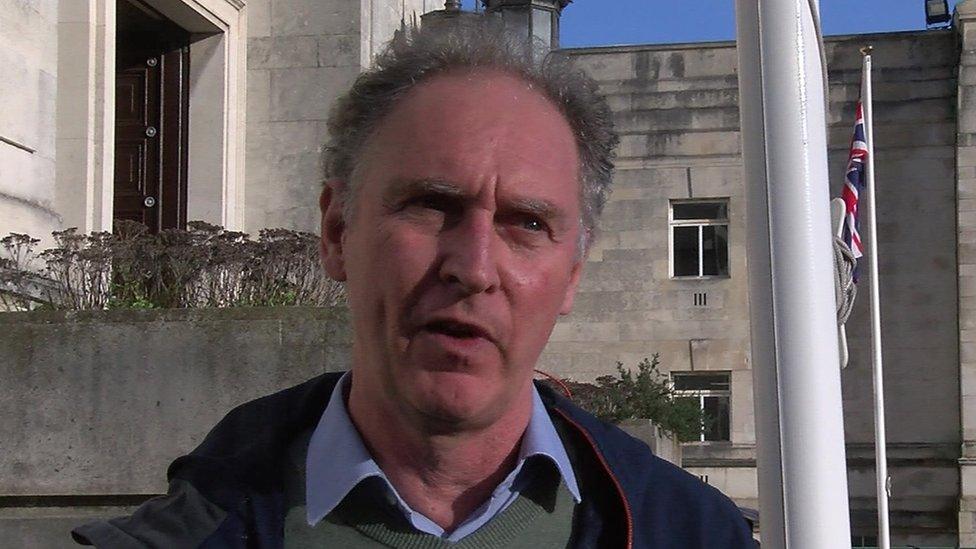Southampton: Emergency support for council facing 'bankruptcy'
- Published
- comments
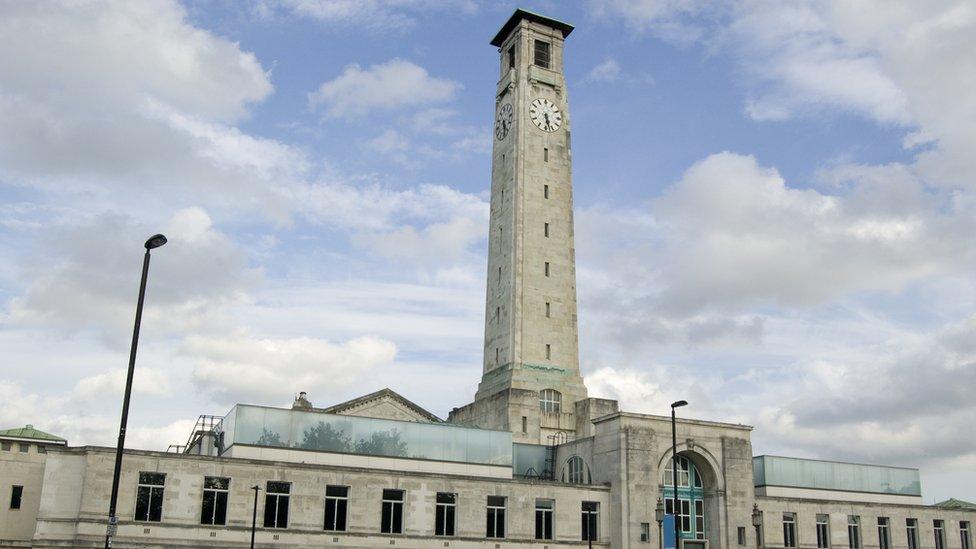
Southampton City Council was facing a £39m budget shortfall for 2024-25
A council has been saved from effective bankruptcy after successfully applying for emergency government help.
Southampton City Council was attempting service cuts and price hikes to meet a £39m budget shortfall for 2024-25.
But on Tuesday the Labour-controlled authority said it had ended efforts to balance the books on its own.
The Department for Levelling Up, Housing and Communities has agreed the council can use £121.6m of capital resources to cover revenue costs.
The so-called capitalisation direction enables the council to sell off assets and buildings to raise money for the next 12 months.
It also means the local authority will be subject to an independent review and will have to provide a "detailed transformation and improvement plan".
Up to £39.3m can be used to offset the 2024/25 budget deficit and enable the council to set a balanced budget on 6 March 2024.
It also includes up to £52m to cover a "potential equal pay claim liability" with an equal pay audit reviewing different working practices that have been in place in parts of the organisation.
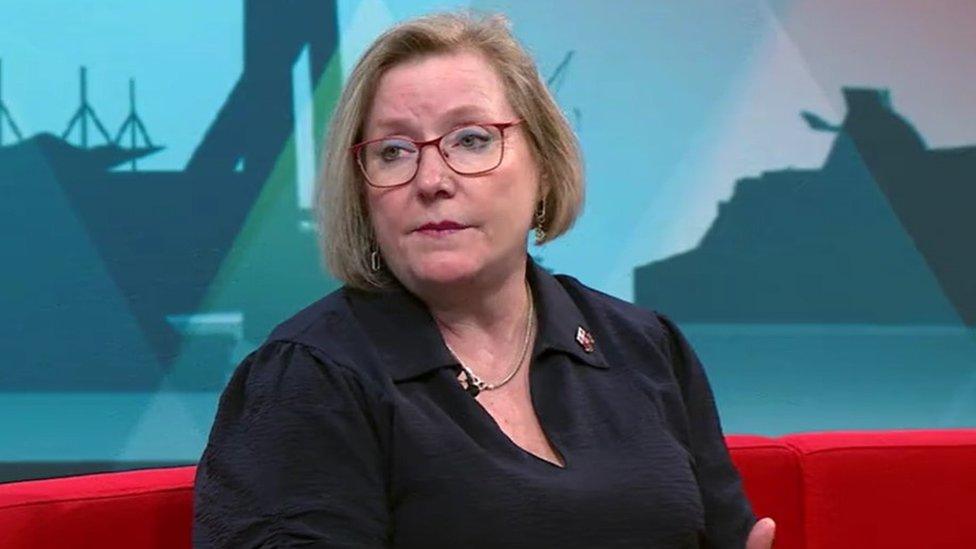
Southampton City Council leader Lorna Fielker said the "heart of local government has been ripped out"
Council leader Lorna Fielker said it was "not a government bailout".
"It's permission to use Southampton's own money in a different way," she said.
"The fact is, this is only needed because of the huge cuts to our budgets since 2010.
"Over £500m has been stolen from local residents that could have been spent on things that people value most in our communities.
"The heart of local government has been ripped out by this Tory government and every person who lives and works in Southampton has been impacted by it."
£121.1mExceptional financial support from central government
£39.3mto offset the 2024-25 budget deficit
£22.8mto cover transformation and restructuring costs
£7.5mfor potential unforeseen events not covered by reserves
£52mto cover a potential equal pay claim liability
An application for the money-raising powers, which can sometimes involve setting a higher council tax, borrowing or selling assets, was submitted in January.
Southampton is one of 19 councils granted a capitalisation direction.
Ms Fielker said the land and buildings chosen to be sold off would be "those that don't have major strategic value to the city, not bringing us in an income".
She said provision of council services would "start to look a bit different".
"Demand has increased, the money has gone down so we need to look at doing things in a different way," she said.
The council had said it would issue a Section 114 notice, effectively declaring bankruptcy, if the government refused to help.
In a statement, the minister for local government, Simon Hoare said the government's financial settlement in February had provided new funding for local authorities worth £600m and the "vast majority" had been able to set a balanced budget.
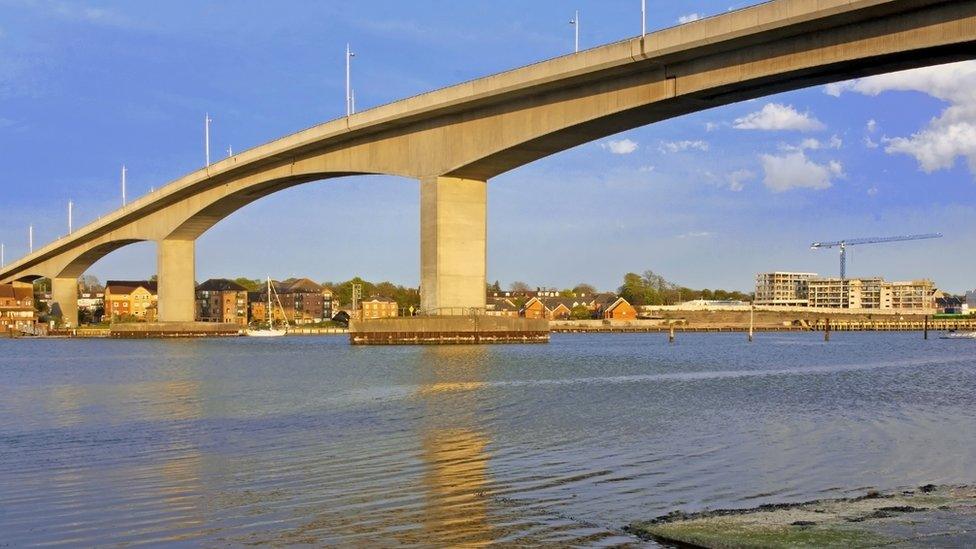
The council has increased tolls on the Itchen Bridge in a bid to generate more revenue
He said capitalisation directions were being granted in "specific and exceptional circumstances".
"These are intended to ensure that the process is only used in circumstances where it is truly necessary; address the drivers of the issues that have led to local authorities requesting support; and ensure continued progress towards achieving financial sustainability," he added.
A council report, external, published in November, predicted the risk of effective bankruptcy in Southampton to be "severe".
The council previously said it needed to find £15m to balance this year's budget, and has been raising money through measures such as increasing tolls on the Itchen Bridge, charging council tax premiums on second homes and closing its last care home.
It still faced a £7.6m overspend for 2023-24, which it said would be met from its reserves.

Follow BBC South on Facebook, external, X, external, or Instagram, external. Send your story ideas to south.newsonline@bbc.co.uk.
- Published27 February 2024
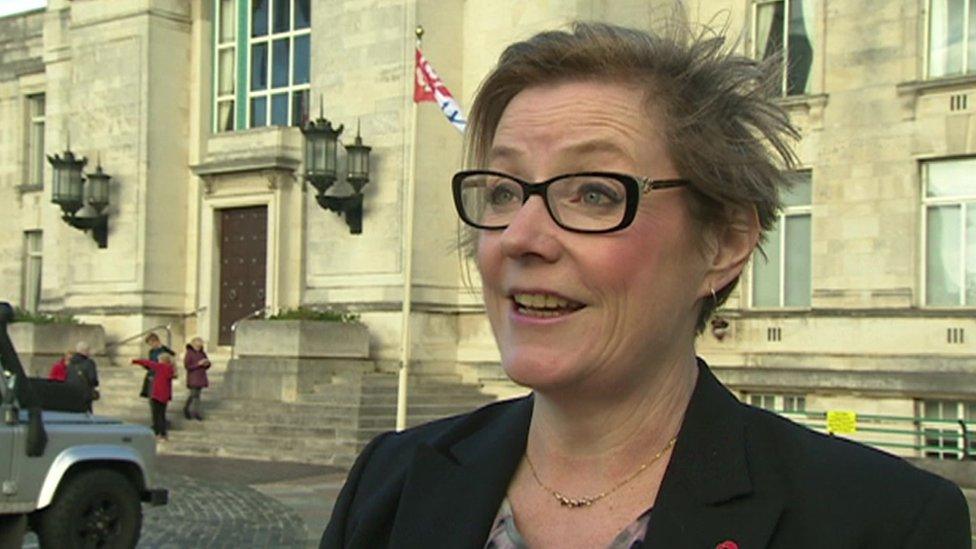
- Published4 January 2024
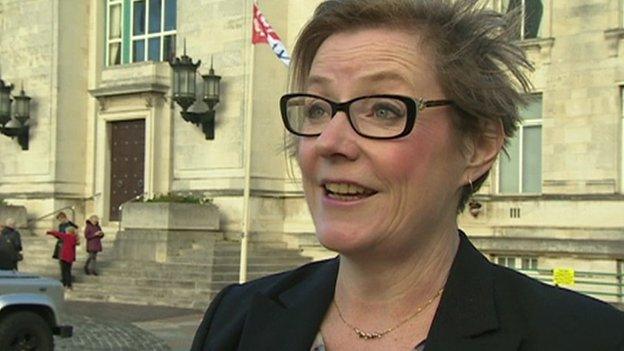
- Published18 November 2023
